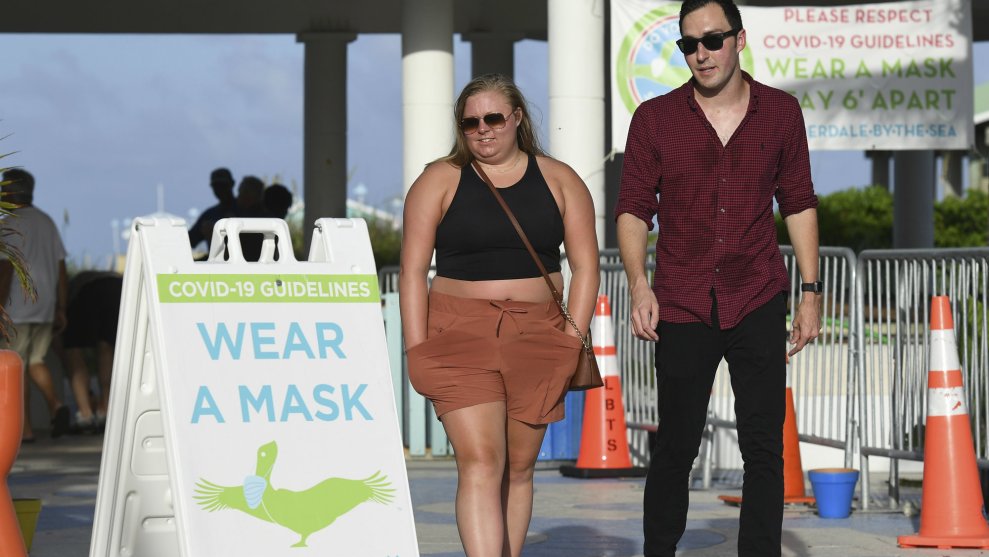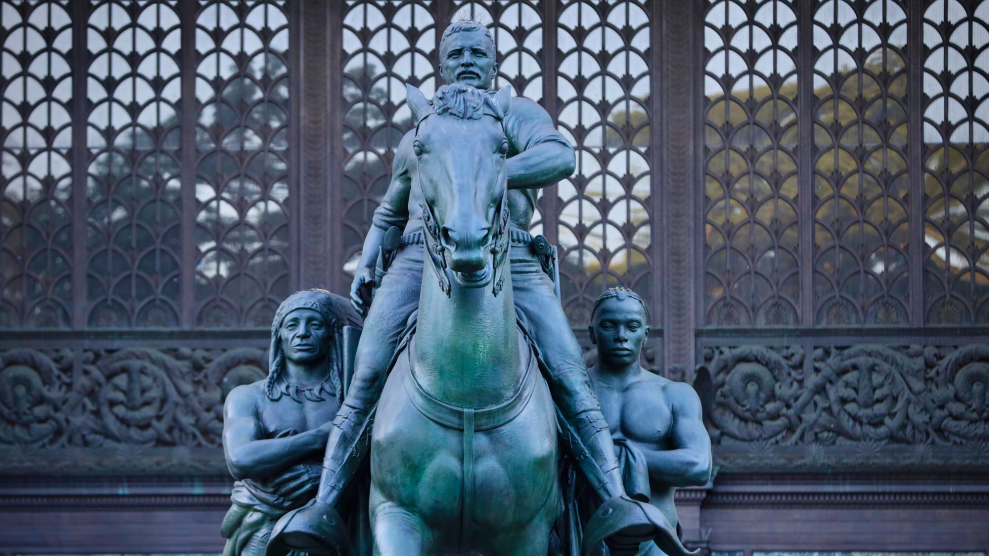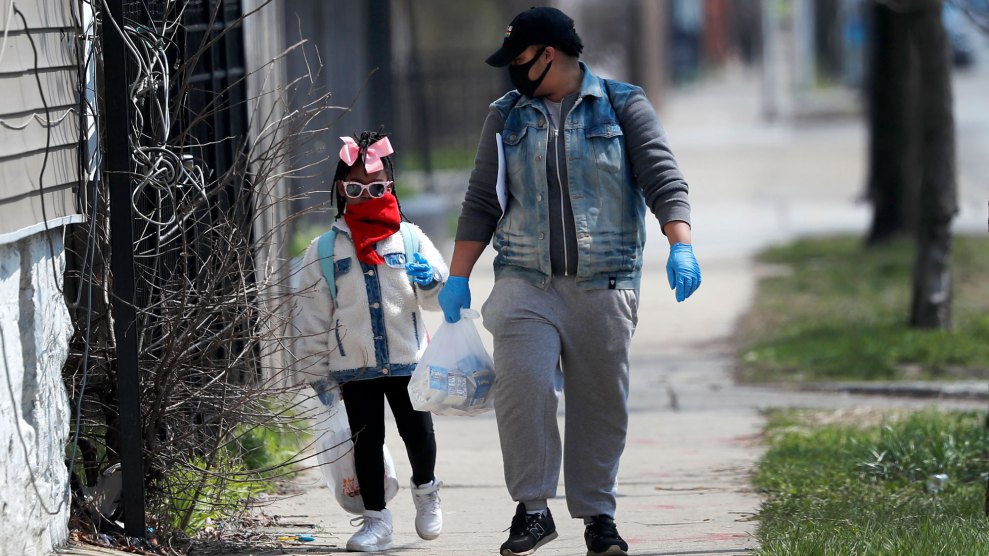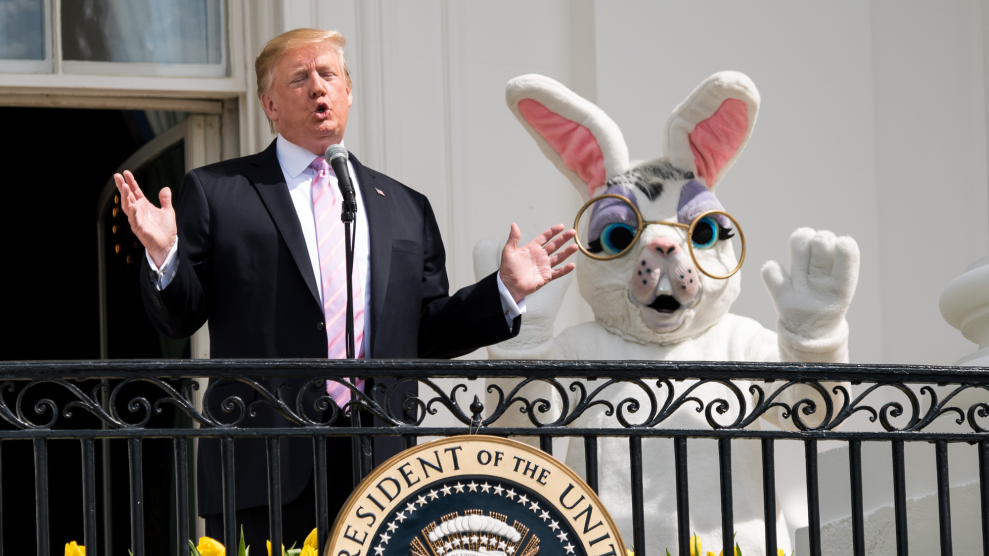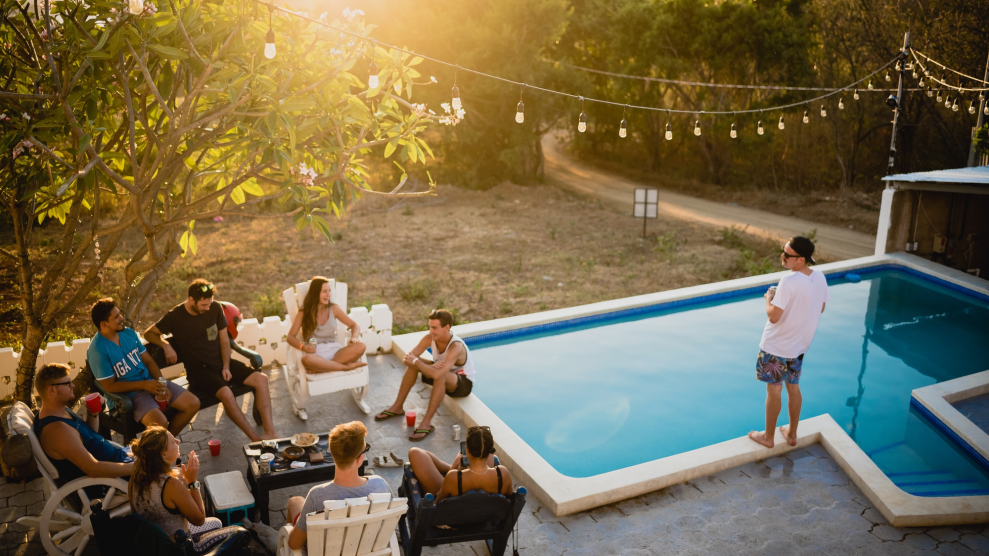
Eric Nopanen/Unsplash
My house has a strict quarantine policy. I share indoor space with my five roommates and a few others in our pod, and only see most friends outdoors, 6 feet away and/or wearing masks. Yet whenever someone we know is passing through town, we end up voting to let them spend the night or even a week, sharing our kitchen, bathroom, and germs. This feels safe because our friends are also quarantining. Like us, they work remotely, can easily get tested, and have little issue receiving public health guidance.
If I weren’t working in media and wearing a mask in public (and feeling occasionally deprived of my favorite social pastimes—concerts and festivals), I could probably forget there’s a global pandemic going on. I never lost my job, many of my peers have resumed flying, and nobody I know has gotten sick since April. Instead, we’re taking advantage of remote-work policies to bounce between AirBNBs in sunny locales, with more time to self-reflect and connect with family. I’m so confident in my negative COVID status that I even stayed over at my grandparents’ house last month. The whole thing’s started to feel like a surreal collective vacation.
Some are even more removed, able to afford Zoom tutors and in-home teachers so their kids’ schooling doesn’t miss a beat. $500 rapid tests—“the new velvet rope”—allow the 1 percent to gather risk-free, merging their pods into a caste-based bubble where the virus doesn’t exist. “Have they been quarantining?” we ask when deciding if someone’s safe for our roommate to kiss. The subtext is, “can they afford to?”; if not, they can’t come to our party.
COVID-19 kills: as of this week, 200,000 people in our country alone. Barring a miracle vaccine before winter, the worst may be still yet to come. In California, where I live, August was the deadliest month of the entire pandemic, with 3,745 lives lost, an 18 percent increase over July. The brunt of this mass death is being borne by Black, Latino, and Indigenous people, particularly those in income brackets lower than my own, where economic necessity forces many to keep packing meat, delivering groceries, dropping off takeout, and cleaning hotels for the rest of us. Our bubble rests on their backs, is kept inflated by the same lungs that coronavirus attacks. None of this is news, but six months into the pandemic, the numbers keep getting worse.
Thanks to institutional racism in American science and medicine, we’ve only slowly glimpsed a full picture of COVID-19’s disparities. By May, it was clear that the states who rushed to re-open saw the most unequal share of Black death. In July, we knew that seven Indigenous tribes had case rates higher than that of any US state. And by September, what had three months prior been a 35 point gap in white and Black mortality rates swelled to 51, according to Andi Egbert of the APM Research Lab. The gap between white and Indigenous grew from 10 to 35, while the over-representation of Latino and Pacific Islander deaths continued to expand as well. When you adjust by age, the disparities get even worse. Today, white people are dying from COVID-19 at lower rates than Black people die without it.
Yes, the pandemic is merely exacerbating disparities that already existed. As disease historian Frank M. Snowden told the New Yorker, diseases spread “along the fault lines created by poverty and inequality.” Black people already had asthma and lung disease; Latinos worked jobs that didn’t offer healthcare; Indigenous communities lacked information access and mistrusted Western institutions. Sometimes I hear myself and other white folks regurgitate these lines with an air of resignation, as if the situation is inevitable, absolving us of guilt. If this is just the way things are, then it’s tragic, but there’s not much we can do. In fact, our inaction is ushering in a new era of deadly American racism: some of us stay afloat or even rise, while others sink and maybe drown. COVID begets more racialized poverty begets more COVID, ad nauseum.
Before the pandemic started, American billionaires collectively held about $3 trillion. In the last six months, as most people dreaded an economic depression, the billionaires grew their hoard by nearly a third, $845 billion and counting. It’s never been more blatant or painful to see: profits are the unpaid wages of the working class.
My upper-class white peers and I were already insulated from the suffering of Black, Brown, and working-class communities, but under COVID, the distance has increased. We’ve fled cities to seek the open space and fresh air of the countryside and suburbs, while also closing ourselves off to friends, lovers, and relatives who don’t meet our safety standards. Both geographically and socially removed, we’re less likely to feel the pressing need to take action. We see the numbers but they don’t affect us; we no longer have to hear the sirens. Besides a grandparent here and there, the dead are not people we know.
The same is likely true for our national leaders, whose procrastination in passing a second aid package has left Americans to bail each other out. But even that urgency has faded: In the early days of the pandemic, my friends launched a mutual aid effort inviting still-employed workers to make direct cash payments to people who’d lost their jobs. $100,000 was moved in a matter of days. Then payments slowed to a crawl, with just $73,000 donated over the next five months. This summer, I helped them make a last-ditch appeal to people who’ve been working remotely, asking them to consider sending what they used to spend on their commute as a weekly donation to a Black or Brown person in need.
Perhaps, as the threat of infection has begun to feel farther away, mutual aid has fallen out of vogue. Of the 27,000 who saw our Instagram ad, only one person signed up to give.


